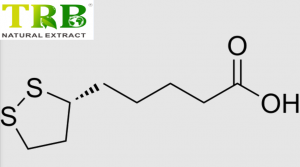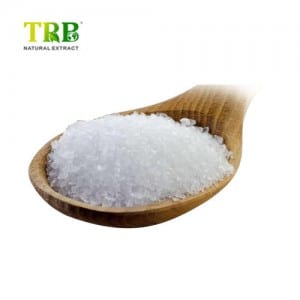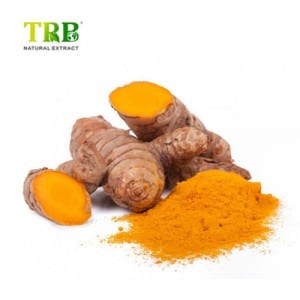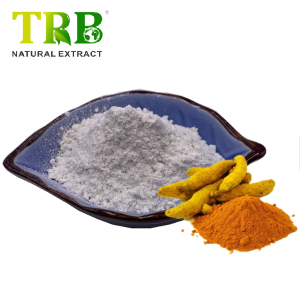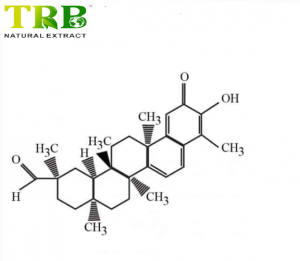Product Name:R-(+)-α-Lipoic acid
Synonyms: Lipoec; Tiobec; Thioderm; Berlition; Thiogamma; Lipoic acid; a-Lipoic acid; Tiobec Retard; D-lipoic acid; Byodinoral 300; d-Thioctic acid; (R)-Lipoic acid; a-(+)-Lipoic acid; (R)-a-Lipoic acid; R-(+)-Thioctic acid; (R)-(+)-1,2-Dithiola; 5-[(3R)-dithiolan-3-yl]valeric acid; 1,2-Dithiolane-3-pentanoicacid, (R)-; 1,2-Dithiolane-3-pentanoicacid, (3R)-; 5-[(3R)-dithiolan-3-yl]pentanoic acid; (R)-5-(1,2-Dithiolan-3-yl)pentanoic acid; 5-[(3R)-1,2-dithiolan-3-yl]pentanoic acid; 1,2-Dithiolane-3-valeric acid, (+)- (8CI); (R)-(+)-1,2-Dithiolane-3-pentanoic acid 97%; (R)-Thioctic Acid(R)-1,2-Dithiolane-3-valeric Acid; (R)-Thioctic Acid (R)-1,2-Dithiolane-3-valeric Acid
Assay: 99.0%
CAS No:1200-22-2
EINECS:1308068-626-2
Molecular Formula: C8H14O2S2
Boiling Point: 362.5 °C at 760 mmHg
Flash Point: 173 °C
Refractive index: 114 ° (C=1, EtOH)
Density: 1.218
Appearance: Yellow Crystalline Solid
Safety Statements: 20-36-26-35
Colour: Light yellow to yellow Powder
GMO Status:GMO Free
Packing: in 25kgs fiber drums
Storage:Keep container unopened in cool, dry place,Keep away from strong light
Shelf Life:24 months from date of production
R-(+)-α-Lipoic Acid: Premium Antioxidant & Mitochondrial Cofactor
(CAS: 1200-22-2 | Purity: ≥98% HPLC)
Product Overview
R-(+)-α-Lipoic Acid (R-ALA) is the naturally occurring enantiomer of lipoic acid, serving as an essential cofactor for mitochondrial dehydrogenase complexes in aerobic metabolism . Unlike synthetic racemic mixtures, the R-form exhibits 10x higher bioavailability and superior antioxidant activity compared to the S-isomer .
Key Features
- Bioactivity
- Acts as a redox regulator, neutralizing ROS (reactive oxygen species) and regenerating antioxidants like glutathione .
- Enhances mitochondrial energy production via PDH and α-KGDH enzyme complexes .
- Clinically shown to reduce oxidative stress markers (e.g., malondialdehyde) and improve cognitive function in preclinical models .
- Technical Specifications
- Purity: ≥98% (HPLC-verified enantiomeric excess)
- Appearance: Light yellow crystalline powder
- Melting Point: 48–52°C | Optical Rotation: +115° to +125° (c=1 in ethanol)
- Solubility: Freely soluble in DMSO (≥100 mg/mL), ethanol, and MCT oil .
- Safety & Compliance
- Non-hazardous under EU CLP regulations when pure .
- Precautions: Avoid inhalation/direct contact; use PPE (gloves, goggles) per OSHA guidelines .
Applications
- Research: Study mitochondrial dysfunction, aging, and neurodegenerative diseases (e.g., Alzheimer’s) .
- Nutraceuticals: Formulate high-potency antioxidants for metabolic support (recommended dose: 100–600 mg/day) .
- Cosmeceuticals: Stabilized sodium R-ALA (Liponax®) for topical anti-aging formulations .
Storage & Stability
- Short-term: Store at 4°C in airtight, light-protected containers .
- Long-term: Stable for ≥4 years at -20°C .
- Transport: Room temperature or refrigerated .
Why Choose Our R-ALA?
- Bio-Enhanced® Formulations: Stabilized sodium R-ALA for superior absorption vs. conventional ALA .
- Batch-Specific COAs: Full traceability with purity, residual solvent (e.g., <0.5% ethyl acetate), and heavy metal testing (<2 ppm lead) .
- Regulatory Compliance: Meets FDA GRAS and EU food additive standards .
Keywords: Natural antioxidant, mitochondrial cofactor, high-purity R-ALA, oxidative stress, dietary supplement, enantiomerically pure.

